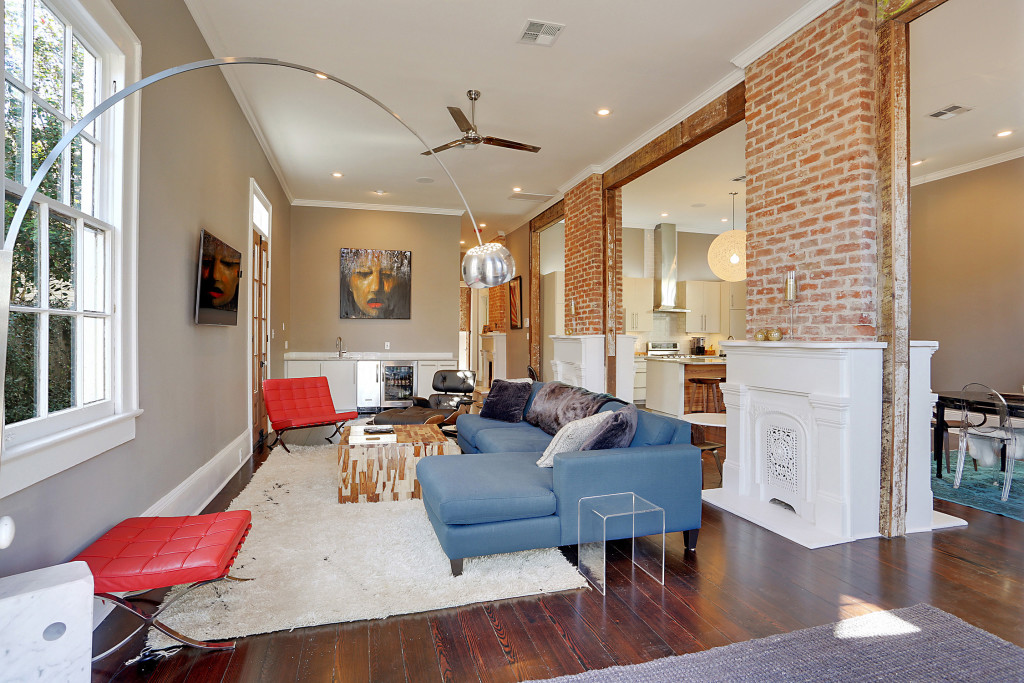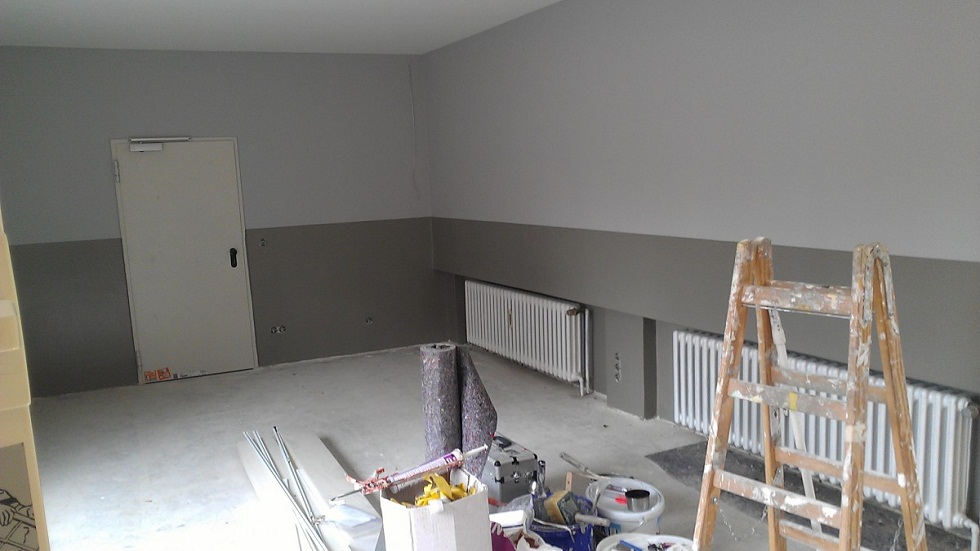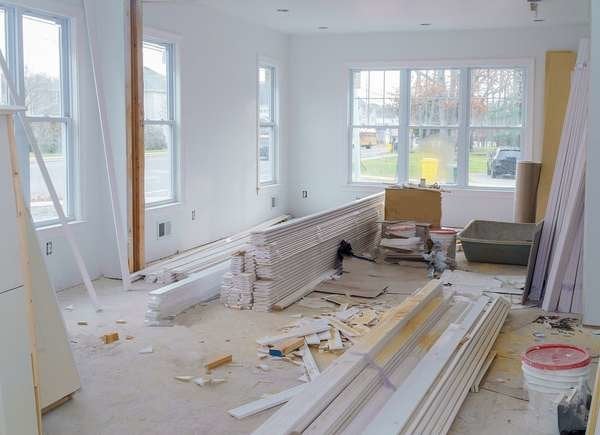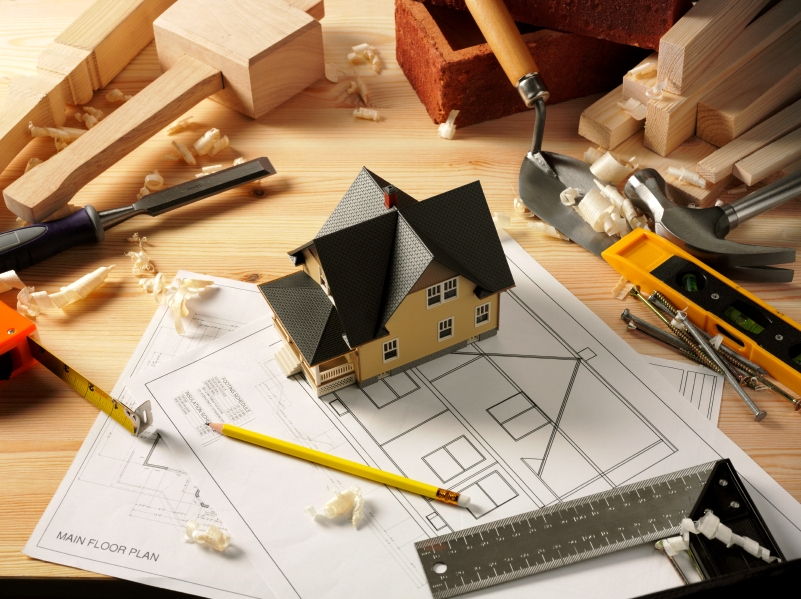Revamping a home can be an exciting and rewarding affair that metamorphoses your living space and adds considerable value to your property while fostering a better quality of life. Nonetheless, home renovations are known to have enormous cost implications and require generous time frames and meticulous planning. Invariably, the most crucial aspect of a successful home renovation project is drawing up a realistic budget. This blueprint allows you to prioritize your needs, apportion resources effectively and keep expenses within limits.
In this blog post, we will discuss,
- Assessing your home renovation needs
- Budget Planning
- Hiring a professional
- Detailed Renovation Plan
Let’s get started!
Assess Your Home Renovation Needs

source: pinterest.com
Before you begin budgeting for your home renovation project, you must assess your property and identify the areas requiring improvement. Begin by examining your current living environment and developing a note of the areas you want to work on. This could include anything from a small bathroom renovation to a large-scale home addition.
When evaluating your home, consider functionality, comfort, and aesthetic appeal. For example, you may want to modernize your kitchen to make it more efficient and contemporary, or you may want to add a walk-in closet to your master bedroom to enhance storage space. Consider increasing your home’s energy efficiency by adding new windows or insulation.
Prioritize the Renovations Based on Urgency and Importance
After you’ve identified the areas needing repair, it’s time to prioritize your projects based on urgency and importance. This can help you better judge how to spend your money and resources.
Begin by determining the most necessary renovations to your home’s safety and structural stability.
For example, if you have foundation issues or structural damage, it’s essential to prioritize these repairs before moving on to cosmetic upgrades.
Next, consider the renovations that will significantly impact your daily life and overall home improvement goals. For example, if you need extra space for your growing family, a room addition or a second-story addition may be a top priority. If you enjoy entertaining guests, you should focus on updating your dining room or family room.
Research the Costs of Each Renovation

source: pinterest.com
Once you have prioritized your renovation needs, it’s time to research the costs of each project and create a list of potential expenses. This can help you create a realistic budget and avoid overspending.
Start by researching the average costs of home addition ideas or renovations similar to those you plan. Factors such as the project size, building code requirements, and the square foot construction cost can all impact the final price.
Next, create a detailed list of potential expenses for each renovation project. This could include everything from the cost of materials and labor to building permits, inspections, and other associated fees. Be sure to account for unexpected expenses, such as foundation work or electrical upgrades.
Determine Your Budget
Now that you’ve identified your home renovation needs and potential expenses, it’s time to evaluate your financial situation and set a realistic budget for the project. This can help you avoid overspending and ensure you have the funds needed to complete the renovations.
Start by reviewing your current financial situation and determining how much money you can allocate to the renovation project. Consider your monthly income, expenses, and any other financial obligations you have, such as a mortgage or car payment.
Next, decide on a total budget for the project based on your financial situation and the potential expenses you’ve identified. Be sure to leave room in your budget for unexpected expenses or emergencies.
Decide on a Financing Option if Necessary

source: pinterest.com
If your budget doesn’t cover the total cost of the renovation project, you may need to consider financing options such as a home equity loan, personal loan, or credit card. It’s important to carefully evaluate the pros and cons of each option and choose the one that best fits your financial needs and goals.
Before applying for any financing options, review your credit score and history and the terms and conditions of the loan or credit card. Keep in mind that financing can add additional costs in the form of interest and fees, so it’s also essential to budget for these expenses.
Hire a Professional
If you’re unsure how to create a comprehensive budget for your home renovation project, consider hiring professional home addition contractors. An experienced contractor or interior designer can help you assess your renovation needs, prioritize tasks, and create a detailed budget based on your financial situation and goals.
A professional can also help you navigate building codes, obtain necessary permits, and select materials that fit within your budget. While hiring a professional may add to the project’s overall cost, it can save you time, money, and stress in the long run.
Create a Detailed Renovation Plan
Developing a detailed renovation plan is essential to ensuring the success of your home renovation project. This plan should include all the renovations you’ve identified, the materials and labor costs associated with each renovation, and any additional expenses you may incur.
Develop a Detailed Plan for Renovations, Materials, and Labor Costs

source: pinterest.com
Begin by creating a list of all the renovations you’ve identified and prioritize them based on urgency and importance. Once you have a prioritized list, research the materials and labor costs associated with each refurbishment and create a budget.
Be sure to factor in additional costs, such as permits, taxes, and insurance. These expenses can quickly add up, so it’s essential to include them in your budget to avoid any surprises down the line.
Factor in Additional Expenses Such as Permits, Taxes, and Insurance
- Building codes and regulations vary by state and locality, so it’s essential to research the specific permits and approvals you’ll need for your renovation project. This may include permits for structural work, electrical work, and plumbing.
- In addition to permits, you’ll also need to consider taxes and insurance. Depending on the scope of your project, your property taxes may increase, and you may need to adjust your homeowner’s insurance coverage to ensure you’re adequately protected.
- Including a contingency plan in your budget for unexpected expenses that may arise during a home renovation project is essential, no matter how carefully you plan.
- A general rule of thumb is to set aside 10% to 20% of your total budget as a contingency fund. This can help cover unexpected expenses such as hidden structural damage, mold remediation, or design changes.
Conclusion

source: pinterest.com
In conclusion, budgeting for a home renovation project is a critical step to ensure the project’s success. By assessing your renovation needs, determining your budget, creating a detailed renovation plan, and sticking to your budget, you can avoid overspending and achieve your renovation goals within your financial means. Remember to factor in all the necessary expenses, such as materials, labor costs, permits, taxes, and insurance, and be flexible and willing to compromise on non-essential items. With careful planning and intelligent decision-making, you can transform your home into a beautiful, functional space that meets your needs and reflects your style.




